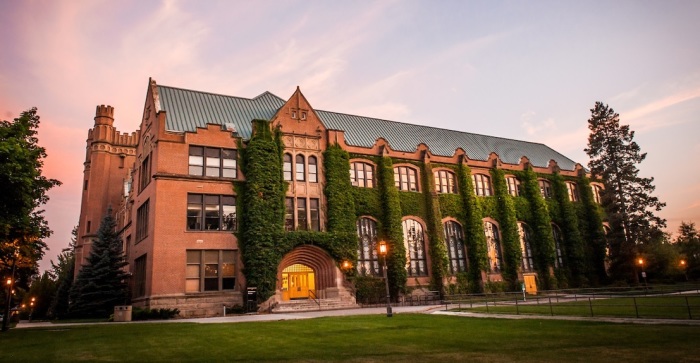Judge stops Idaho university from punishing Christian students for opposing gay marriage

A judge issued a temporary block to a university policy that censored three Christian students who had expressed opposition to same-sex marriage on religious grounds.
Students Peter Perlot, Mark Miller and Ryan Alexander sued the University of Idaho over a policy in which they were barred from talking with a student about their views on same-sex marriage.
The three belong to the University of Idaho chapter of the Christian Legal Society, which holds traditional views on the definition of marriage and sexual ethics.
In an order released last week, Chief U.S. District Judge David C. Nye issued a preliminary injunction against the enforcement of the university’s policies against the plaintiffs.
Nye noted that university officials targeted the plaintiffs over their specific religious views, namely their opposition to same-sex marriage.
“Defendants’ orders targeted the viewpoint of Plaintiffs’ speech. Both students and professors expressed opposing viewpoints to the views expressed by Plaintiffs without any type of intervention, let alone punishment,” wrote Nye.
“The disparity in Defendants’ approach is what bothers the Court most about this case and leans towards a finding that Defendants’ actions were designed to repress specific speech.”
Nye added that “the Court agrees Plaintiffs have a high likelihood of showing Defendants violated the First Amendment by issuing the no-contact orders based on the content and viewpoint of their speech.”
“Some may disagree with Plaintiffs’ religious beliefs. Such is each person’s prerogative and right. But none should disagree that Plaintiffs have a right to express their religious beliefs without fear of retribution. The Constitution makes that clear,” he added.
The Alliance Defending Freedom, a law firm helping to represent the three plaintiffs, released a press release Friday celebrating the injunction order.
“Peter, Mark, and Ryan are guaranteed the freedom under the First Amendment to discuss their faith on campus, just like every other student and faculty member,” said ADF Legal Counsel Mathew Hoffmann, as quoted in the press release.
“We’re pleased they are again free to exercise their constitutionally protected freedoms without fear of punishment, and we look forward to a final resolution of this case in their favor and, ultimately, in favor of free speech for everyone.”
In late April, the three students sued university officials after they were given “no-contact orders” from the school’s Office of Civil Rights & Investigations.
According to the lawsuit, the students attended an LGBT event on campus with the intention of representing a biblical perspective on marriage and sexual ethics.
When a student asked them about their views, they offered their perspectives and gave the unnamed student a note expressing an interest in continuing the dialogue.
Instead of the conversation continuing, the three students were given “no-contact orders,” which barred them from further communication with the student that they had dialogued with.
“The CLS members did not receive notice that anyone had complained about them and were not given an opportunity to review the allegations against them or defend themselves,” stated the suit.
“Instead of allowing the students to disagree civilly and respectfully with one another and to discuss these important issues, the University chose instead to censor Plaintiffs.”
In an earlier statemen to The Christian Post, university spokesperson Jodi Walker explained that the no-contact order was “a supportive measure available to a student under Title IX” and that “these supportive measures must be enacted” when a student requests them.
“When a complaint is made that qualifies under Title IX, the university must make the student aware of the supportive measures available,” said Walker at the time.





























